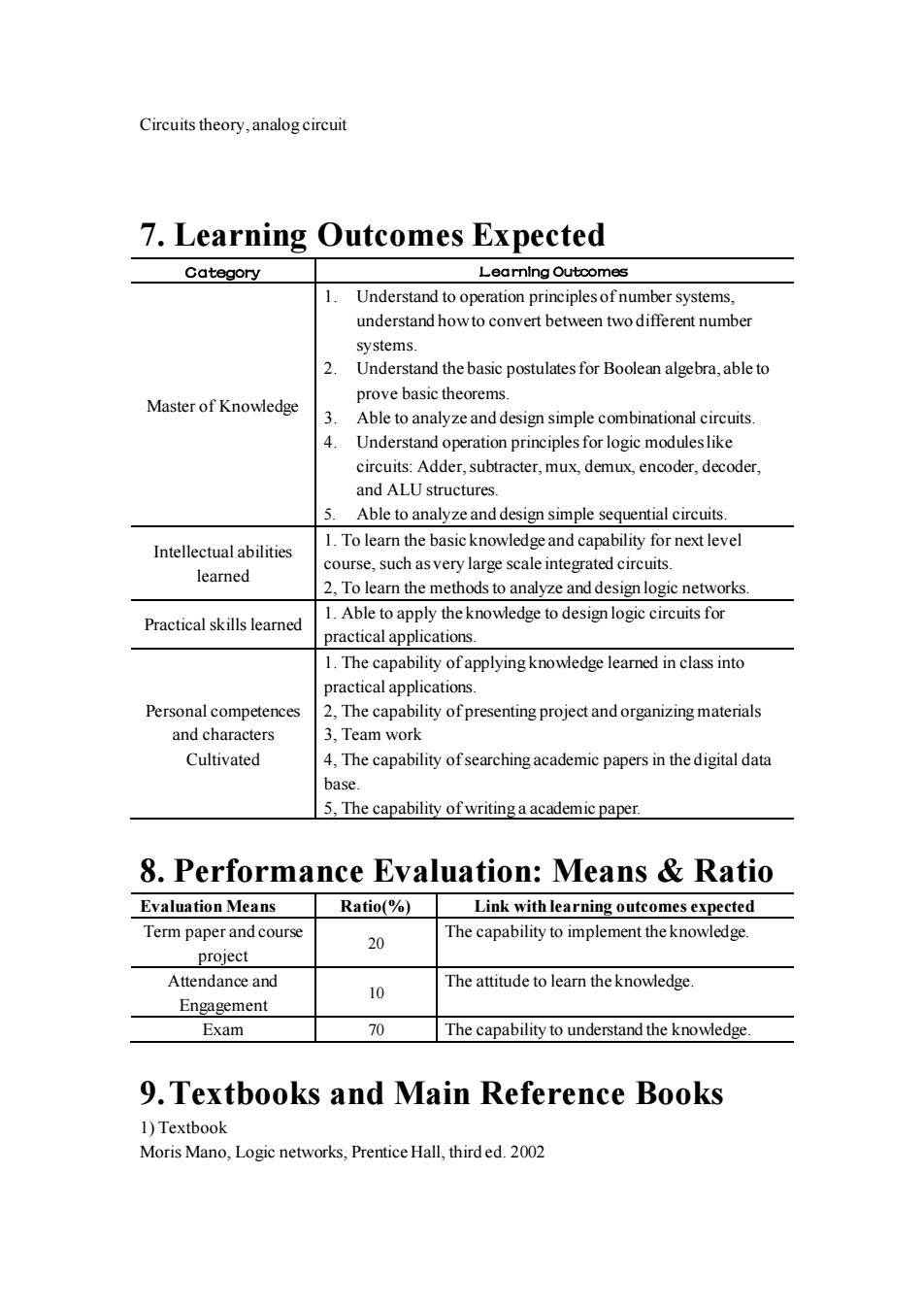正在加载图片...

Circuits theory,analogcircuit 7.Learning Outcomes Expected Category Leaming Outoomes Understand to operation principlesofnumber systems, understand howto convert between two different number systems. 2 Understand the basic postulates for Boolean algebra,able to Master of Knowledge 4.Understand operation principles for logic moduleslike circuits:Adder,subtracter,mux,demux,encoder,decoder, and AlU structures 5 Able to analyze and design simple sequential circuits. .Toe the basicknowledge and capabilityfor course,such as very large scale integrated circuits learned 2,To learn the methods to analyze and design logic networks. 1.Able to apply the knowledge to design logic circuits for Practical skills learned practical applications. .The capability of applying knowedge learned into oractical applications. Personal competences 2,The capability ofpresenting project and organizing materials and characters 3,Team work Cultivated 4.The capability ofsearching academic papers in thedigital data a50 5.The capability of writing a academic paper. 8.Performance Evaluation:Means Ratio Evaluation Means Ratio(%) Link with learning outcomes expected Term paper and course The capability to implement the knowledge. project 20 Attendance and 10 The attitude to learn the knowledge Eng婴ement Exam 70 The capability to understand the knowledge. 9.Textbooks and Main Reference Books Circuits theory, analog circuit 7. Learning Outcomes Expected Category Learning Outcomes Master of Knowledge 1. Understand to operation principles of number systems, understand how to convert between two different number systems. 2. Understand the basic postulates for Boolean algebra, able to prove basic theorems. 3. Able to analyze and design simple combinational circuits. 4. Understand operation principles for logic modules like circuits: Adder, subtracter, mux, demux, encoder, decoder, and ALU structures. 5. Able to analyze and design simple sequential circuits. Intellectual abilities learned 1. To learn the basic knowledge and capability for next level course, such as very large scale integrated circuits. 2, To learn the methods to analyze and design logic networks. Practical skills learned 1. Able to apply the knowledge to design logic circuits for practical applications. Personal competences and characters Cultivated 1. The capability of applying knowledge learned in class into practical applications. 2, The capability of presenting project and organizing materials 3, Team work 4, The capability of searching academic papers in the digital data base. 5, The capability of writing a academic paper. 8. Performance Evaluation: Means & Ratio Evaluation Means Ratio(%) Link with learning outcomes expected Term paper and course project 20 The capability to implement the knowledge. Attendance and Engagement 10 The attitude to learn the knowledge. Exam 70 The capability to understand the knowledge. 9.Textbooks and Main Reference Books 1) Textbook Moris Mano, Logic networks, Prentice Hall, third ed. 2002